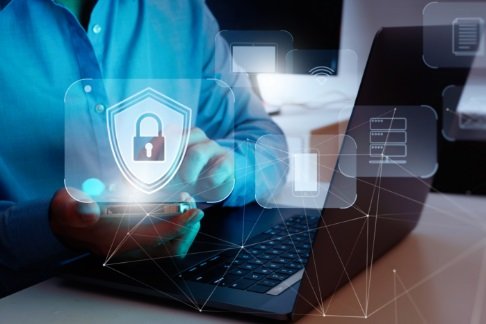Source: Vector choice - URS Preferred Partner
Summer is a peak time for vacation travel, and if you're planning a last-minute getaway, there's a new scam you should be aware of. With rising costs for everything from food to travel, it's tempting to scour the internet for the best deals to plan a memorable trip without overspending. Unfortunately, cybercriminals are taking advantage of this trend, using sophisticated AI-generated phishing emails that can drain more than just your vacation fund. According to Booking.com’s Chief Information Security Officer, Marnie Wilking, there’s been a staggering 500% to 900% increase in travel-related scams over the past 18 months due to this malicious tactic.
How Are Scammers Pulling This Off?
Phishing emails have been around for as long as the internet, but AI tools like ChatGPT are making them more convincing than ever. In the past, phishing attempts were often easy to spot due to obvious spelling and grammatical errors. Now, with AI, scammers can produce polished, professional-looking emails that are far more likely to deceive even the cautious reader.
Here's their method: Scammers exploit popular platforms like Booking.com or Airbnb, which allow users to list properties as short-term rentals. They send out emails offering amazing deals or urgent discounts on fake listings. Once someone pays, the scammers either vanish with the money, leaving the victim without a place to stay, or they continue to extract additional "fees" through follow-up emails before disappearing.
It's important to note that vacation-related phishing scams aren't new, but the rise of AI has made them more convincing, leading to more victims.
How Can You Protect Yourself?
Here are some crucial steps to avoid falling victim to these scams:
Enable Two-Factor Authentication: Whenever possible, use two-factor or multi-factor authentication. This adds an extra layer of security by requiring a confirmation code sent to your phone each time you log in, helping to prevent phishing attacks and credential theft.
Avoid Clicking on Email Links: If you receive an email offering a deal that seems too good to be true, it probably is. Instead of clicking on the link, visit the website directly and search for the offer. If you can’t find it, you might have just dodged a scam.
Verify Before Booking: Before booking any property online, ensure that contact information and reviews are easily accessible. Look for verified reviews from other users who have stayed at the property; this reduces the likelihood of falling for a scam.
Use Credit Cards for Online Purchases: Credit cards offer an extra layer of protection compared to debit cards, which are linked directly to your bank account. If your debit card is compromised, recovering stolen funds can be difficult, if not impossible. Credit cards provide greater security against fraudulent charges.
Stay Vigilant
The key to protecting yourself is vigilance. Scrutinize every email offer you receive and adhere to cybersecurity best practices. While standard security software can catch some scam emails, it won't catch them all, so it's crucial to remain cautious and alert to potential red flags.
A personal scam might ruin your vacation, but a breach of your business could have far-reaching consequences for you and your family. Stay informed and protect yourself from these evolving threats.
To learn more Contact us

















